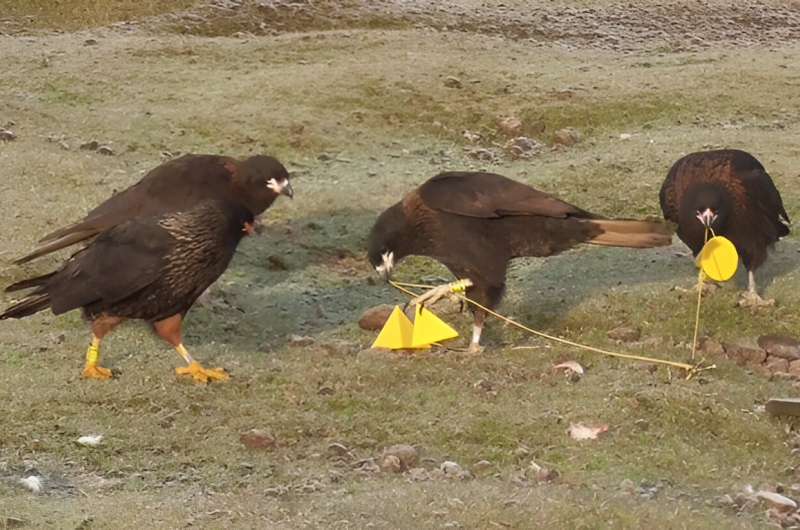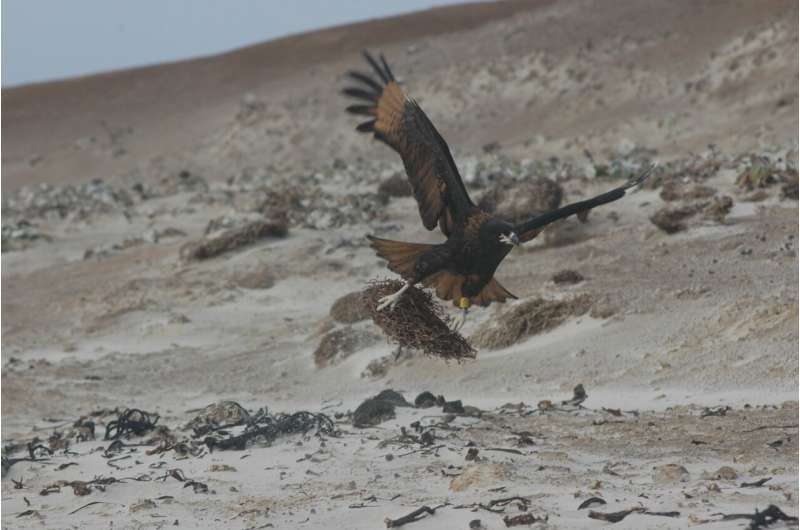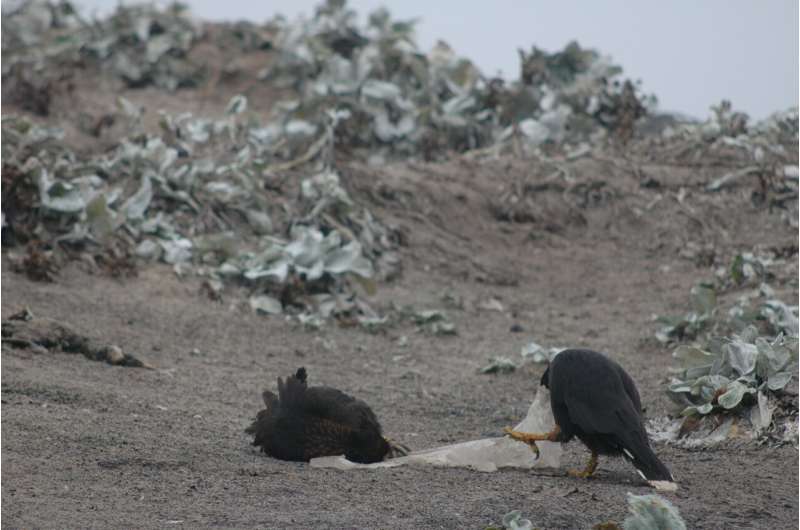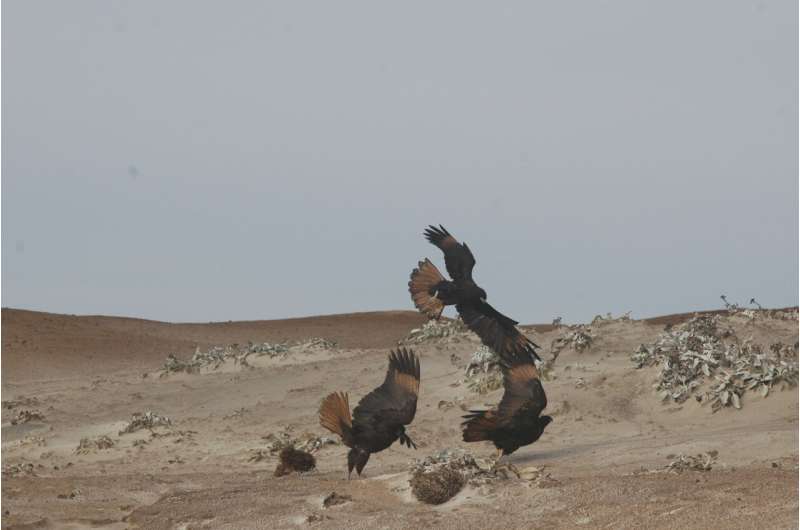This article has been reviewed according to Science X's editorial process and policies. Editors have highlighted the following attributes while ensuring the content's credibility:
fact-checked
proofread
An endemic island falcon that plays

An unusual falcon species has been added to the growing list of animals that play. A study published in the Journal of Raptor Research explains that Striated Caracaras (Phalcoboenus australis) in the Falkland Islands like to interact with various objects like sheets of plastic, sea cabbage, sheep poop, and stones—apparently for fun.
In their short communication, "Object Play in Wild Striated Caracaras (Falconidae)," lead author Katie Harrington and co-author Megan L. Lambert, both from the Comparative Cognition Unit in the Messerli Research Institute at the University of Veterinary Medicine in Vienna, emphasize that the study of play can illuminate ways in which animals interact with the world, and Striated Caracaras in particular may be able to teach us about how certain exploratory traits arise in nature.
Caracaras are surprisingly understudied within the field of animal behavior and cognition research, even though they show similar problem-solving skills to parrots and corvids, and are related to both groups. In the Falkland Islands, Striated Caracaras face "pulsed resources," meaning there are dramatic seasonal changes in food availability.
During the austral summer, caracaras feed on resources associated with seabird colonies, but in the austral winter, most seabirds migrate offshore, which means the caracaras are then limited to whatever edible opportunities they discover. They may get thrifty and explore novel objects, in hopes of stumbling upon a caloric jackpot.

As Harrington explains, "The more caracaras interact with the world around them, the more opportunities they have to learn what is food and what isn't, how to find new types of food, and how to handle and exploit different items."
Over the course of three years, the research team observed numerous instances of caracaras playing with natural objects. To be considered "play" a behavior needed to meet the following previously established five criteria: be intrinsically rewarding, lack apparent purpose, generate new behaviors or experiences, be voluntary and repeatedly performed, and occur in relaxed conditions.
Notable natural play events included three young birds catching and releasing a dried bundle of kelp roots in flight, two others playing tug-of-war with a penguin skin (without eating it), and another young bird picking up a piece of sheep poop, dropping it, watching it roll down a hill, and then retrieving it to play the game six more times.
Harrington and Lambert wanted to test what made particular objects attractive for caracaras to play with.

Humans and other animals tend to direct their attention towards more complex things, and as such, the wild caracaras were offered an array of objects that varied in complexity (measured by the number of surfaces), with a cone being the least complex and square pyramid the most complex.
The object trials were extremely popular—eighteen birds participated across eight sessions, with some individuals eagerly returning for more. To their surprise, the research team found that the least complex object, the cone, drew the most attention, possibly because of the movement feedback when the birds kicked it.
This is one of the few systematic investigations of play in wild animals and is only the beginning for caracaras. Expanding research on these birds could help identify the ecological conditions for the evolution of play, and more specifically, could help improve the caracaras' historically complicated reputation.
"Striated Caracaras are often misunderstood," says Harrington. "They're a big, dark bird that 'gets up to no good.' We're hoping this research can be a PR boost for them. Showing that they also like play, like a child or a puppy would, might encourage people to look more fondly on this curious threatened species."

The team also underscores how understanding the caracaras' play behavior could benefit more than just the birds. "It's hard to do anything around Striated Caracaras without piquing their interest," says Harrington, "and this can be dangerous for them or damaging for conservation projects when caracaras' space use overlaps with areas where managers, for example, need to place new devices or toxic baits to remove invasive species.
"The information we gain from studying what draws and keeps caracaras' attention, how they interact with new objects, and whether their play attracts their peers, can help minimize those risks."
More information: Katie J. Harrington et al, Object Play in Wild Striated Caracaras (Falconidae), Journal of Raptor Research (2024). DOI: 10.3356/JRR-23-19
Provided by Raptor Research Foundation




















